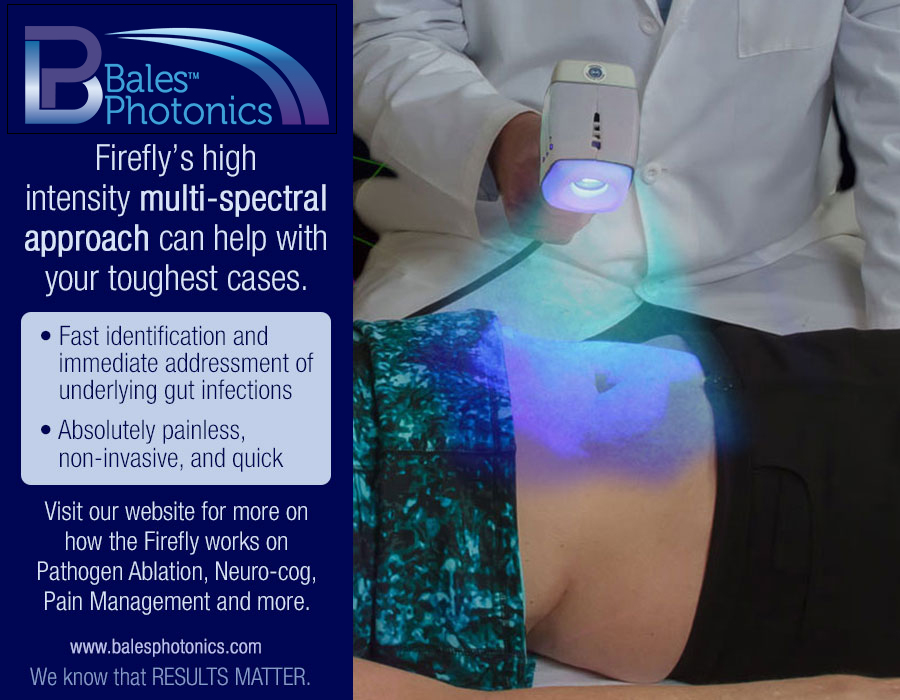Devaki Lindsey Berkson, DC
I love to have my paws and claws done. Life is a series of “risk” vs. “benefit.” The way it makes me feel to move through my world with “done” nails, is worth the possible toxic exposures. And I am always learning something no matter where I go.
Sitting next to a lovely young woman, I inquired, “Are you a pianist or artist, you have such artistic, long fingers?” They were elegant.
She somewhat nervously covered her hands and bemoaned, “Oh, this rash, it’s because of my allergy to propylene glycol, sorry about that.”
I looked closer. I hadn’t noticed but, of course, had to ask further. “Your allergy to propylene glycol? How on earth did you figure that out?”
And thus this moment of “curriculum,” of learning more if you inquire and connect, unfolded.
Her story: Her name is Tiffany. A substantial 38-year-old woman in the heating and cooling industry for years. (Not a pianist at all). “I took up vaping early in the pandemic. And in over a year, I started to have these rashes with blisters all over my body. Especially my hands.
“I trekked to allergists. They did skin testing on me and couldn’t figure anything out. I kept having rashes on my hands, painful blisters, itching, embarrassment. But I’m a pit bull and never give up.”
She slowly figured out it was related to the vaping. Vaping uses propylene glycol to help it come out of the vaping mechanism.
She figured out that when she bought her shampoo in a small bottle that didn’t contain propylene glycol. But when she bought a larger bottle at Costco, she got blisters and rashes again.
More sleuthing discovered that propylene glycol has many names. The larger Costco shampoo bottle had it under propanediol. Other names for propylene glycol are 1,2-dihydroxypropane, 1,2-propanediol, methyl glycol, and trimethyl glycol.
The reason it didn’t show up in skin prick tests is that her allergy—she figured put—was “delayed.” It took 48 hours from exposure for Tiffany’s blisters and rashes to show up. Allergist skin tests identify “immediate” reactions, not delayed.
Thus, Tiffany figured this out on her own. And I got “in” on the amazing story while getting my nails done!
By the way, some Covid vaccines contain this. More on that a bit further down.
Propylene glycol is an emollient and emulsifier found in cosmetics, medications, and food, and has been granted the dubious honor of being named the American Contact Dermatitis Society’s Allergen of the Year for 2018.1
But most allergists test it for “immediate” response, not “delayed” so many reactions to this go unidentified. Some of these reactions may be yours.
Propylene glycol is as contentious as it is ubiquitous because it acts as both a weak sensitizer and an irritant, confounding the results of positive patch tests. So getting tested at your allergist’s office does not always catch this issue for you. Keep that in mind.
A collaborative effort from a number of researchers at the Mayo Clinic and the Brown Internal Medicine program wrote about their experience with propylene glycol.2,3
They admit that propylene glycol (PG) is a solvent, vehicle, and humectant being used increasingly in a wide array of personal care products, cosmetics, and topical medicaments.
They reviewed records of 11,738 patients undergoing patch testing to 5%, 10%, or 20% propylene glycol solutions. Of these, 100 (0.85%) tested positive and 41 (0.35%) had irritant reactions.
They concluded: Propylene glycol is common in skin care products and is associated with both allergic and irritant patch test reactions. Increased concentrations were associated with increased reactions.
But they tested immediate reactions, not “delayed”—which Tiffany had figured out was her issue. So, Mayo and Brown probably missed lot of reactions. They also did not mention vaping or vaccines.
Components of the Pfizer mRNA vaccine
What are the ingredients in the Pfizer-BioNTech COVID-19 Vaccine and are these exact ingredients represented in any other prescription or non-prescription drugs or products? Vanderbilt University Medical Center4 published what is in some Covid vaccines:
- Active ingredient: a nucleoside-modified messenger RNA (modRNA) encoding the viral spike (S) glycoprotein of SARS-CoV-2.
- Inactive ingredients:
- Lipids ((4-hydroxybutyl)azanediyl)bis(hexane-6,1-diyl)bis(2-hexyldecanoate), [(polyethylene glycol [PEG])-2000]-N,N-ditetradecylacetamide, 1,2-distearoyl-sn-glycero-3-phosphocholine, and 0.2 mg cholesterol),
- Electrolytes potassium chloride, monobasic potassium phosphate, sodium chloride, dibasic sodium phosphate dihydrate, and
- Sugar (sucrose)
- The diluent, added to the vaccine for administration, is saline (Sodium Chloride)
Why is it in vaccines? We are told propylene glycol is used for “stabilizing.”5 The reason it’s used in the Pfizer and Moderna vaccines is that the little piece of genetics that’s creating the response we want is very unstable.
Read this in Science:
“Severe allergy-like reactions in at least eight people who received the COVID-19 vaccine produced by Pfizer and BioNTech over the past 2 weeks may be due to a compound in the packaging of the messenger RNA (mRNA) that forms the vaccine’s main ingredient, scientists say. A similar mRNA vaccine developed by Moderna, which was authorized for emergency use in the United States on Friday, also contains the compound, polyethylene glycol (PEG).
“PEG has never been used before in an approved vaccine, but it is found in many drugs that have occasionally triggered anaphylaxis—a potentially life-threatening reaction that can cause rashes, a plummeting blood pressure, shortness of breath, and a fast heartbeat.
Some allergists and immunologists believe a small number of people previously exposed to PEG may have high levels of antibodies against PEG, putting them at risk of an anaphylactic reaction to the vaccine.”6
Propylene glycol is also used in everyday products such as toothpaste! In your mouth! And in shampoo. Why? As thickeners, solvents, softeners, and moisture carriers.
It’s been used as a laxative for decades.
Propylene glycol substances were long thought to be biologically inert, but a growing body of evidence suggests they are not. As much as 72% of people have at least some antibodies against these, according to a 2016 study led by Samuel Lai, a pharmaco-engineer at the University of North Carolina, Chapel Hill, presumably as a result of exposure to cosmetics and pharmaceuticals.
If you don’t react, well this may mean nothing to you. But your or your kids or friends may react and not know what’s causing it. Your allergist may not know what’s causing it.
Knowledge is power. When you need tools in your tool bag, that’s when it helps figure out life and healing.
Seems corporations, industry, profits, insurance, the system, wants to put more and more chemicals into us. While functional medicine is trying to detox and limit what goes into us and our need for meds or vaccines in the first place. All the while we get dissed and accused of being profit pushers.
Ugh.
I came home with lovely nails and couldn’t wait to share this all with YOU.
Dr. B.
References
- Jacob SE, Scheman A, McGowan MA. Propylene Glycol. Dermatitis. 2018 Jan-Feb;29(1):3-5. doi: 10.1097/DER.0000000000000315. PMID: 29059092.
- McGowan MA, Scheman A, Jacob SE. Propylene Glycol in Contact Dermatitis: A Systematic Review. Dermatitis. 2018 Jan-Feb;29(1):6-12. doi: 10.1097/DER.0000000000000307. PMID: 29064881.
- Lalla SC, et al. Patch Testing to Propylene Glycol: The Mayo Clinic Experience. Dermatitis. 2018 Jul/Aug;29(4):200-205. doi: 10.1097/DER.0000000000000393. PMID: 29923851.
- https://www.vumc.org/coronavirus/known-covid-19-co…
- https://www.wtsp.com/article/news/health/coronavir…
- De Vrieze J. Suspicions grow that nanoparticles in Pfizer’s COVID-19 vaccine trigger rarre allergic reactions. Science. December 21, 2020.
Published April 8, 2023
About the Author
Devaki Lindsey Berkson, DC, is considered a thought leader in functional medicine. Dr. Berkson has been lecturing for CMEs to MDs, pharmacists, DCS, NDs, and nutritionists for more decades than her ego wants to admit.
Dr Berkson wrote one of the breakthrough books on endocrine disruption. Based on this book, Hormone Deception (McGraw-Hill 2000 Awakened Medicine Press 2016) she was invited to be a distinguished scholar at an estrogen think tank at Tulane University (Center for Bioenvironmental Research) where she studied with the scientists that discovered the first two estrogen receptors and launched the EDC field.
Her book Healthy Digestion the Natural Way (Wiley 2002) was the first gut, nutrition, spirituality digestion book and a long-time best seller. Its sequel is a breakthrough book creating a new field — Nutritional Gastroenterology. Her latest book, Sexy Brain, warns of environmental castration and how sex steroid hormones rule the brain.
Dr. B presently works at the Naples’ Center for Functional Medicine (Dr. David Perlmutter’s old clinic) where she initiated the first functional renal program and adjunctive nutritional/pharmaceutical/hormonal support program for breast cancer survivors.
Berkson hosts the Dr. Berkson Best Health Radio Show (soon to be called Agile Answers), and launched a membership for practitioners – Smart + Heart during the pandemic. She writes for substacks.com under Agile Thinking.

